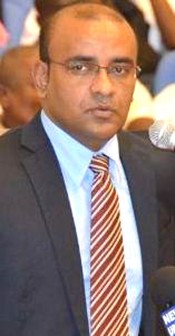The International Cricket Council’s (ICC) Media and Communications Manager Sami Ul-Hasan says he cannot comment on the ongoing impasse between the West Indies Cricket Board (WICB), an affiliate of the ICC and the Guyana government.
“I’ve discussed your (Guyana cricket) problem internally and because it’s a matter of a Member (WICB) we (ICC) cannot offer you a comment,” Hasan replied in answer to an email correspondence sent to him.
The two sides are expected to meet sometime today to discuss the Cricket Administration Bill recently passed in the National Assembly.
The two sides have been unable to come to a compromise ever since the government set up an Interim Management Committee (IMC) headed by former West Indies captain Clive Lloyd to among other things draft a new constitution.
Lloyd’s IMC though, perhaps attempted to perform duties outside of its mandate such as selecting national teams and the WICB quickly quelled that minor insurrection by refusing to accept teams selected by Lloyd’s IMC and stating that the present Guyana Cricket Board (GCB) was the only entity locally that they (the WICB) recognized.
Recently, the WICB pulled the scheduled third New Zealand/West Indies senior team test match from Guyana relocating the event to Barbados in a move seemed at attempting to force the government not to sign the contentious Bill into law.
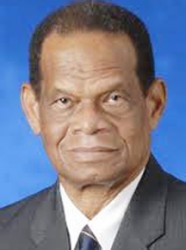
There have also been reports that the WICB might be considering pulling the U19 regional tournament from Guyana also.
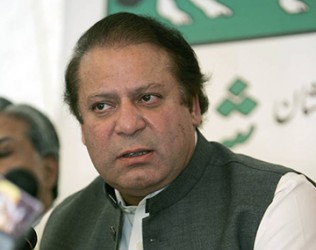
The two sides had previously reached an agreement brokered by CARICOM under then presidents Bharrat Jagdeo (Guyana) and Julian Hunte, (WICB) but Stabroek Sports understands that the agreement was not respected.
Stabroek Sports also sought a reaction from a former president of the ICC who spoke to Stabroek Sports on the condition of anonymity.
”I am aware that there is an on-going dispute between WICB and Guyana regarding the structure of cricket in Guyana and how the Guyana Board is run. I also read with some regret that the match against New Zealand had been moved; it is the people who love the game who suffer the most and not the administrators. “Unfortunately, the governance of ICC itself is undergoing a massive change and not at all for the good. It is unlikely you will get any clear answer from the ICC. None of the so called Big Three directors of the ICC are going to do anything to upset the WICB at this stage,” said the former ICC president.
“What is important is that they work together to protect and promote the game in Guyana and not harm it,” he ended.
And, a former high-profile ICC member who also spoke to Stabroek Sports on the condition of anonymity said that the ICC answers to no one and that he has given up a long time ago expecting them to be accountable.
“I resigned years ago and have not been involved with anything to do with the ICC since. The hypocrisy that you have just pointed out has been in evidence for years so that’s nothing new.
“I have given up bothering myself with ICC and WICB matters as they answer to no one and do as they like, so I see no point in continuing to beat my head against a stone wall. Those who have the power to make them answerable, especially in the case of the WICB, seem not to care to
exercise their will so “little” me, have moved on.” There is a feeling that cricket in Guyana and ultimately the West Indies will continue to be the laughing stock of the world mainly because of WICB intransigence and the ICC’s incompetence in the ongoing shenanigans which have been going on for almost five years.At the heart of the matter is government interference in sport and in this instance cricket but the ICC has not been altogether too clear on the issue.
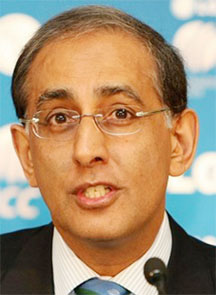
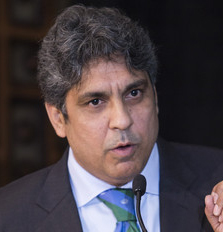
Recognising that in some instances the government has the right to intervene and usually did, former ICC Chief Executive Officer, Haroon Lorgat, in June 2011, gave cricket boards worldwide two years to be free from government intervention/interference in the sport and in February the following year the ICC actually came out and condemned the Guyana government for intervening in cricket when it implemented the IMC.
But later that year, in November actually, new ICC president Alan Isaac said the ICC was “reviewing its anti-governance stance”. But government interference in cricket boards is nothing new especially in the cricket boards of Pakistan and Sri Lanka.
In 2001 the Sri Lanka government dissolved the cricket board amidst reports of mis management.
The Sri Lanka board at the time led by former player Somachandra de Silva was sacked by the country’s sports minister.
Earlier this year, in February to be precise, the Pakistan Cricket Board (PCB) was dismissed by the government with Prime Minister Nawaz Sharif replacing the PCB including Chairman Zaka Ashraf with an 11 member committee.
